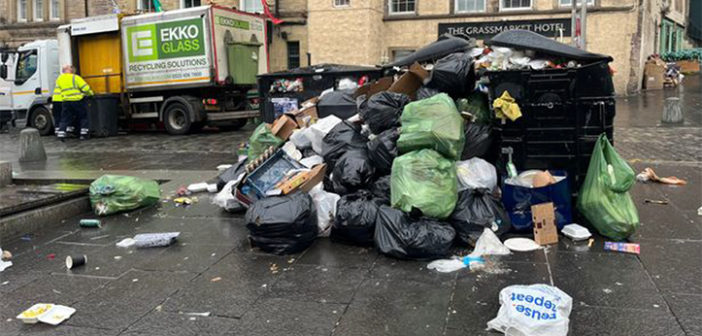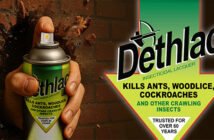The ongoing bin strike in Edinburgh has seen the city centre piled with burst bin bags and food containers as the capital gets consumed by rubbish.
Chris Cagienard, managing director of Pest Solutions, has warned exactly when vermin, thriving in excess rubbish, will flee into homes after mass breeding due to the refuge worker strikes.
Edinburgh Council workers are set to continue their action as they say the offer of a 5% pay rise does not come with the guarantees that they require.
Mr Cagienard said his company has received more calls about the activity of rats since the strikes started and detailed what residents can expect when the rubbish is finally removed.
He predicts that due to an excess of food available and a hidden habitat rats will be breeding right now and in around six weeks if the rubbish is removed from the streets, the rodents will try to get into locals homes to find a new source of food.
Mr Cagienard said: “We are always rushed off our feet, when the streets are covered with litter it’s not that there are suddenly more of them but their behaviour changes in terms of diet and breeding.
“In lockdown they started to move into homes because there was no food in the closed restaurants and businesses. Rats and mice share the same space as us because there are resources there. There has been an increase in reports of activity in the city, the overflowing bins and rubbish lining the streets provides them with safe cover to move around without being seen and easy pickings for food.”
Mr Cagienard continued: “They can break through the bags easily and live comfortably while the mess is there, but they are less likely to eat the food we use because the rubbish has meat and things that are a lot more appetising for rats.
“It means they are a lot more sustained and it helps them to grow faster and stronger. Numbers will increase and pest control will be constantly fighting a battle that we barely win in normal circumstances.
“When the rubbish is removed and cleared away this is when they will start coming into people’s homes because they will need to relocate, they breed rapidly and in the perfect habitat like they are in now with an amplitude of food they breed even faster.”




